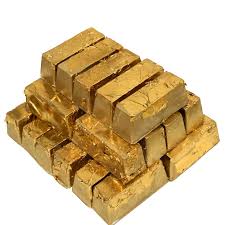From the Open-Publishing Calendar
From the Open-Publishing Newswire
Indybay Feature
Legacy of our Gold Mining Town of Negro Bar, California
Honorable William Alexander Leidesdorff, Jr., "African Founding Father of California owned over 35,521 acres of land in the Sacramento Valley including the Gold Mining Town of Negro Bar, California

California Pan African Heritage remains an unspoken subject throughout our California Educational System, interesting enough established by the first President of the San Francisco School Board, Honorable William Alexander Leidesdorff, Jr.
Leidesdorff served as first elected Treasurer of San Francisco and US Vice Consul in Alta California, Mexico.
Beginning with the debates September 1849 at Colton Hall, Monterey and subsequent action October 1849, complete disenfranchisement of legal standing for all accept "white men" was canonized by the signing of the California Constitution Convention.
The entitled land ownership of Leidesdorff Ranch and many legal Gold Mining claims by people of Pan African ancestry were forever transferred with the stroke of the pen and legal redress impossible.
Early official reports in Spring of 1848 document miners along water springs along the mile long gravel bed of Negro Bar, apart of Rancho Rio De Los Americanos, Leidesdorff Ranch.
Between 1848 - 1855, official documents estimate well over 5 million dollars of Gold was washed from the gravel along the plentiful, Negro Gold Bar.
After California Statehood in 1850, heavy flooding along the American River and the California Fugitive Slave Act of 1852, few people of Pan African Ancestry could remain "free" residents mining along Negro Bar, California.
Most residents of Pan African Ancestry moved to Negro Hill, Negro Bluff, Coloma and other more hospitable regions of California Gold Rush District.
Fall 1849, 170 years ago today, the town Negro Bar was established. Negro Bar, part of California State Parks, remains a cherished part of the "California Mosaic," as our esteemed departed friend Dr. Kevin Starr, California State Librarian Emeritus, would proudly share his high culture values and beliefs with student life learners.
The Department of the California State Parks and Recreation, over a half century ago, preserved our California Gold Rush legacy by naming part of the vast Folsom Lake Recreational Area, after the mining town Negro Bar.
Today, 170 years later, on the 2019 Autumnal Equinox, American River Parkway Clean-Up Day, Folsom Community Service Day and a preview of our 170th Anniversary Gala Celebration aligned with the 170th Commemoration of the California Constitution Convention is designed to spark interest and Investment in our growing public/private partnership.
Soon, a golden shovel ground breaking Ceremony will begin a multi-phase development at Negro Bar that will raise an inclusive stature, cultural tourism and historical preservation of our California Pan African Heritage along the American River Parkway for the next 170 years against all enemies, both foreign and domestic.
Leidesdorff served as first elected Treasurer of San Francisco and US Vice Consul in Alta California, Mexico.
Beginning with the debates September 1849 at Colton Hall, Monterey and subsequent action October 1849, complete disenfranchisement of legal standing for all accept "white men" was canonized by the signing of the California Constitution Convention.
The entitled land ownership of Leidesdorff Ranch and many legal Gold Mining claims by people of Pan African ancestry were forever transferred with the stroke of the pen and legal redress impossible.
Early official reports in Spring of 1848 document miners along water springs along the mile long gravel bed of Negro Bar, apart of Rancho Rio De Los Americanos, Leidesdorff Ranch.
Between 1848 - 1855, official documents estimate well over 5 million dollars of Gold was washed from the gravel along the plentiful, Negro Gold Bar.
After California Statehood in 1850, heavy flooding along the American River and the California Fugitive Slave Act of 1852, few people of Pan African Ancestry could remain "free" residents mining along Negro Bar, California.
Most residents of Pan African Ancestry moved to Negro Hill, Negro Bluff, Coloma and other more hospitable regions of California Gold Rush District.
Fall 1849, 170 years ago today, the town Negro Bar was established. Negro Bar, part of California State Parks, remains a cherished part of the "California Mosaic," as our esteemed departed friend Dr. Kevin Starr, California State Librarian Emeritus, would proudly share his high culture values and beliefs with student life learners.
The Department of the California State Parks and Recreation, over a half century ago, preserved our California Gold Rush legacy by naming part of the vast Folsom Lake Recreational Area, after the mining town Negro Bar.
Today, 170 years later, on the 2019 Autumnal Equinox, American River Parkway Clean-Up Day, Folsom Community Service Day and a preview of our 170th Anniversary Gala Celebration aligned with the 170th Commemoration of the California Constitution Convention is designed to spark interest and Investment in our growing public/private partnership.
Soon, a golden shovel ground breaking Ceremony will begin a multi-phase development at Negro Bar that will raise an inclusive stature, cultural tourism and historical preservation of our California Pan African Heritage along the American River Parkway for the next 170 years against all enemies, both foreign and domestic.
Add Your Comments
We are 100% volunteer and depend on your participation to sustain our efforts!
Get Involved
If you'd like to help with maintaining or developing the website, contact us.
Publish
Publish your stories and upcoming events on Indybay.
Topics
More
Search Indybay's Archives
Advanced Search
►
▼
IMC Network


